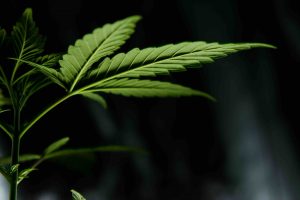 The Chicago legislature has recently put laws in place that allow farmers to grow industrial hemp. This is a replacement of the old regime under which such actions were barred. A system of permits ensures that issues of public safety and good conduct are taken into consideration. Hemp belongs to the family of the cannabis plant. Although it can be used as a narcotic in sufficiently strong concentrations, it is also used to make textiles as well as paper-based industrial products. Farmers could potentially earn an income from this plant that is also on the banned list of substances. The old law was caught between encouraging genuine commercial activity and preventing the large-scale production of potential narcotics. The initial plan was to allow the cultivation for research purposes and then move on to commercial production for non-narcotic usage.
The Chicago legislature has recently put laws in place that allow farmers to grow industrial hemp. This is a replacement of the old regime under which such actions were barred. A system of permits ensures that issues of public safety and good conduct are taken into consideration. Hemp belongs to the family of the cannabis plant. Although it can be used as a narcotic in sufficiently strong concentrations, it is also used to make textiles as well as paper-based industrial products. Farmers could potentially earn an income from this plant that is also on the banned list of substances. The old law was caught between encouraging genuine commercial activity and preventing the large-scale production of potential narcotics. The initial plan was to allow the cultivation for research purposes and then move on to commercial production for non-narcotic usage.
The Illinois Department of Agriculture is intimately involved in all the proceedings so as to ensure appropriate oversight. The Drug Enforcement Administration (DEA) previously classified hemp as a Schedule 1 Drug. That meant that farms could not legally grow it, certainly not on an industrial scale. The classification was based on the findings that the drug had a high potential for abuse. Those who dispute the classification argue that hemp contains only trace elements of the offending substance known as tetrahydrocannabinol, or THC. This is indeed the psychoactive chemical that is known to create a high for marijuana users. Over time, a number of states (now numbering 16) have gradually legalized the production of hemp for commercial purposes. By 2014, Illinois had put legislation in place to allow for the growing of hemp by State Universities and the Department of Agriculture.
The Narcotic with Huge Potential
The Associate Director of the State Legislation in charge of the Illinois Farm Bureau explains that the rules and regulations were designed to ensure that businesses within the state were not losing out on potentially lucrative opportunities due to dogmatic opposition to any form of hemp growing. It is important to note from a practical point of view that hemp is not just another narcotic. It is sometimes eaten as a salad, cereal, or even yogurt. The oil that comes from the seed is an excellent finishing agent. That is why the increased commercial production of hemp is gaining traction regardless of the pockets of opposition to it. The association between hemp and marijuana continues to be one of the main reasons why there is still some opposition.
Scientific research has shown than industrial hemp has less than 0.3% THC. This is unlikely to be sufficient to produce a high in anyone, whereas marijuana contains as much as 15% THC, which makes it a potentially powerful narcotic. The Controlled Substances Act of 1970 failed to highlight the distinctions between the two plans. That means that for the most part, they were treated as being so close to the extent that the regulation of one must also lead to the regulation of the other. The Illinois Stewardship Alliance believes that it should only be the level of psycho-activity that is relevant when making decisions about the plants that are going to be banned.
Moving on from the Cannabis Control Act
The impact of the new legislation is to make provision for the industrial production of hemp. However, that does not mean that anyone can or should grow it. There is a stringent licensing system that is meant to catch those who want to abuse the system. This makes sense since Illinois has a strong association with agriculture as an important economic activity. That means that certain exemptions are in order at this point. For professional counsel on your industrial hemp case, contact David Freidberg, Attorney at Law at 312-560-7100.
(image courtesy of Esteban Lopez)
 Chicago Criminal Lawyer Blog
Chicago Criminal Lawyer Blog


